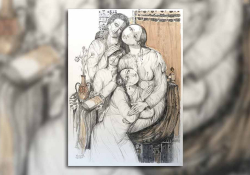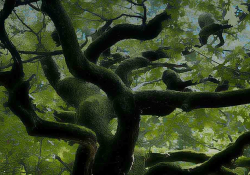I Write with Words That Have Shadow but Don’t Shelter

I write with words that have shadow but don’t shelter
no sooner do I start this page insomnia burns it
not the words but what they consume is what reality starts occupying
the place without place
the agony the game the illusion of being in the world
illusion is not what reality is made of but the ignited lightning
simulacra where ceremonies take place
bright exchanges from the emptiness of desire
there is no longer place for writing because writing is the place itself
of what is erased
we don’t discover the world we describe it in its stubborn elusiveness
I shall no longer return to the sea but the sea lives in that absence
it is the sea when the word announces it
and is spilled over the page like a hand
I shall no longer be at the forest but in the page I write on
and I glimpse its foliage the wind passes by
there shall be no more summer but sun devouring memory
and the great night of sand coming to cover the eyes
and we shall only be able to read what wasn’t written
Translation from the Spanish
Editorial note: From Selected Translations, 2000–2020, copyright © 2021 by Ilan Stavans, forthcoming from the University of Pittsburgh Press on February 23, 2021. First publication, by permission of the translator.















